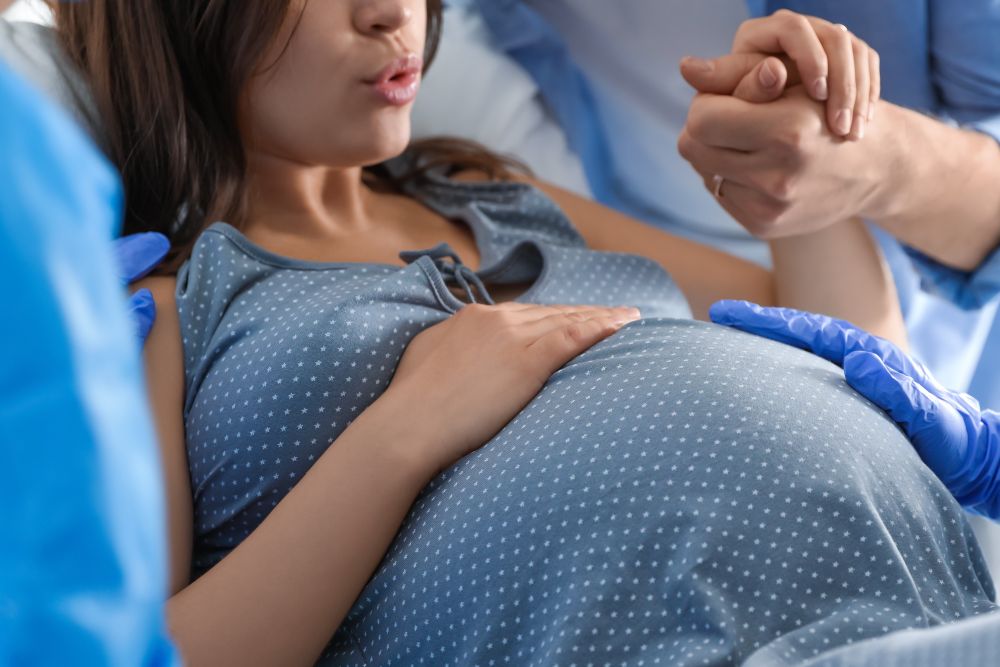Compensation for medical errors during childbirth can help compensate for the harm suffered by the mother, child, or entire family. Childbirth should be a happy occasion. When it is marred by medical malpractice, the consequences can be dramatic: irreversible after-effects, disabilities, loss of independence, or even death. Medical errors during childbirth often leave lifelong scars. Obtaining compensation is a right. However, it is important to know how to proceed, who to turn to, and what damages can be compensated. Our birth injury lawyers will tell you everything you need to know.
What is considered medical malpractice during childbirth?
Medical malpractice during childbirth refers to an inappropriate intervention, omission, or decision contrary to recognized medical practices that has caused harm. It can occur at different stages of care:
- Before childbirth: misinterpretation of ultrasound scans during pregnancy, misdiagnosis of a prenatal condition, failure to screen for risk factors (gestational diabetes, preeclampsia, infection), errors in prenatal care.
- During labor: unjustified delay in performing a cesarean section, inappropriate use of forceps or vacuum extraction during vaginal delivery, negligence in monitoring the fetal heart rate, overdose of oxytocin to speed up labor.
- Immediately after birth: poor management of respiratory distress, errors in immediate care of the newborn, failure to manage postpartum complications.
These errors can have serious consequences: cerebral palsy, fractures, brain damage due to hypoxia, obstetric brachial plexus palsy, developmental delay, or death of the infant or mother.
Who can be held liable?
Several professionals or entities may be involved in medical malpractice during childbirth or medical negligence:
- Obstetricians: for poor management of labor or inappropriate clinical decisions.
- Midwives and nurses: if they failed to detect a warning sign, misinterpreted a monitoring trace, or delayed alerting a doctor.
- Anesthesiologists: for errors related to epidural blocks or general anesthesia.
- Hospital or birth center: in the event of deficient protocols, inadequate equipment, or a lack of competent staff.
Liability is based on three legal criteria:
- A fault (deviation from medical standards and the code of ethics for doctors).
- Damage (physical, psychological, material).
- A causal link between the two.
A specialized lawyer assesses whether these conditions are met.
What recourse is available after a medical error during childbirth?
There are three types of recourse:
1. Disciplinary complaint
This targets the professional’s conduct. The complaint is filed with their professional association (Collège des médecins du Québec, Ordre des infirmières, etc.). This recourse does not result in financial compensation, but it can sanction the professional and improve practices.
2. Complaint to the Complaints Commissioner
Available in all public network institutions, a complaint to the Complaints Commissioner may lead to internal recommendations. This is an administrative procedure, which is often unsatisfactory for serious misconduct.
3. Civil liability action
A civil liability action is the only recourse that aims to obtain financial compensation after a medical error or negligence has caused harm. It aims to obtain compensation for the damages suffered. This recourse requires solid evidence, a medical expert, and specialized legal support. This is where a firm like MedLégal comes in.
What types of damages are compensable?
The Quebec system allows compensation to be claimed for various damages, provided that fault is proven.
Bodily injury
- Permanent physical disabilities
- Cerebral palsy
- Obstetric trauma to the mother or child
- Untreated respiratory distress caused by medical error during the procedure or immediate postnatal care
Moral and psychological damages
- Emotional distress and post-traumatic depression
- Anxiety and chronic anxiety
- Loss of enjoyment of life
- Moral pain related to the loss of a child or guilt
Economic damages
- Loss of income for the parent who has become a caregiver
- Future care costs (physical therapy, occupational therapy, lifelong medical care)
- Home help, specialized educational support
- Home or vehicle modifications
- Loss of future earning capacity (for the child victim)
Long-term assistance
- Presence of a caregiver
- Prolonged medical follow-up
- Specialized services for a child living with permanent limitations
Collective damages
In some cases, a class action lawsuit may be considered (rare for individual errors during childbirth, but possible in cases of systemic errors in an institution).
How can you get compensation for medical malpractice during childbirth?
Compensation is obtained through civil legal proceedings. Here are the main steps:
- Legal consultation: an experienced lawyer analyzes the facts, the severity of the consequences, and the chances of success.
- Gathering evidence: complete medical records, birth reports, nursing notes, growth charts.
- Independent medical opinion: a medical expert specializing in obstetrics assesses whether there was negligence.
- Formal request to the insurer: letter of formal notice, accompanied by supporting documents.
- Negotiation or legal proceedings: depending on the insurer’s response, legal proceedings may be brought before the civil courts.
MedLégal’s lawyers take care of all these steps. The firm works with recognized medical experts and represents the victim in dealings with insurers or in court.
What compensation amounts can be expected?
The amount of compensation varies depending on the nature of the injury, the severity of the consequences, and the victim’s future needs. No lump sum is determined in advance. Each case is assessed individually, based on the factual and medical evidence presented.
Compensation may cover all the repercussions of the medical error: personal and moral injury, economic consequences, and long-term care needs.
It is also possible to obtain compensation for services rendered by a caregiver when a parent has to radically change their life to care for their child.
The court takes into account medical expertise, functional assessment reports, and the prospects for changes in health status when determining the total amount. The role of the lawyer is fundamental in asserting the full extent of damages suffered during childbirth, both current and future.
Legal proceedings for compensation for medical malpractice during childbirth
Legal action is a lengthy process, often taking between two and five years. It involves:
- Filing a petition to initiate proceedings
- Preliminary stages (interrogations, contradictory expert opinions)
- Possibility of out-of-court settlement at any time
- Otherwise, trial and judgment
A well-prepared case supported by experts increases the chances of a quick settlement.
Is there a time limit for taking action?
Yes. The statute of limitations in Quebec is three years. It begins when the person becomes aware of their injury and the possibility that it may be related to medical malpractice. For children, this period is suspended until they reach the age of majority.
However, the longer you wait, the more the evidence fades. It is therefore strongly recommended that you take action as soon as doubts arise.
Get help with your claim after a medical error during childbirth
A medical error during childbirth can change a life. Obtaining compensation for a medical error during childbirth is often the only way to ensure future care for the child, relieve the financial burden on the parents, and acknowledge the fault that has been committed. The process is complex and technical, requiring rigorous medical and legal analysis.
Medlégal’s medical liability lawyers work with the best experts to assert your rights and file a complaint against a healthcare facility or professional. If you suspect an error during your delivery or that of a loved one, contact us now for a confidential assessment of your case.
FAQs on compensation and recourse for medical errors committed during childbirth
1. Can action be taken if the damage becomes apparent later?
Yes, the time limit starts from the discovery of the damage.
2. Can the hospital be held liable even if the error is medical?
Yes, if there is organizational failure or liability on the part of the staff.
3. Is there a cap on compensation?
There is no cap on economic losses. Non-economic damages follow case law (e.g., loss of opportunity).
4. Is a lawsuit always necessary?
No. An amicable agreement may be reached after formal notice, but a lawsuit may be required if no settlement is possible.
5. Can I consult a lawyer even if I don’t have all my medical records?
Yes. The lawyer can help you obtain through legal channels a complete copy of your medical records from the hospital or the professional concerned. It is recommended that you do not wait to take this step.
6. What types of evidence are needed to obtain compensation?
The evidence mainly includes the complete medical file, birth reports, postnatal examinations, and an assessment by an independent medical expert. Testimonials, photos, or any document attesting to the consequences of the negligence may also be useful.
7. Is the hospital covered by insurance in the event of negligence?
Yes. Public and private healthcare facilities, as well as healthcare professionals, are covered by professional liability insurers. Negotiations or legal proceedings generally take place with these companies.
8. How long does a medical malpractice lawsuit related to childbirth take?
The duration varies depending on the complexity of the case. A settlement can sometimes be reached within a few months, but if the case goes to trial, it often takes between two and five years. The involvement of medical experts and resistance from insurers can prolong the process.
9. Is it possible to settle the case without going to trial?
Yes. Most cases are settled out of court, often after an expert report has been filed and a formal notice has been sent to the insurer. MedLégal always favours a fair solution, whether in court or through an out-of-court settlement.
10. I gave birth in a private clinic. Can I still pursue a claim?
Yes. Medical liability also applies to private clinics. Regardless of where the birth took place, if negligence is proven, you have the right to seek compensation.







